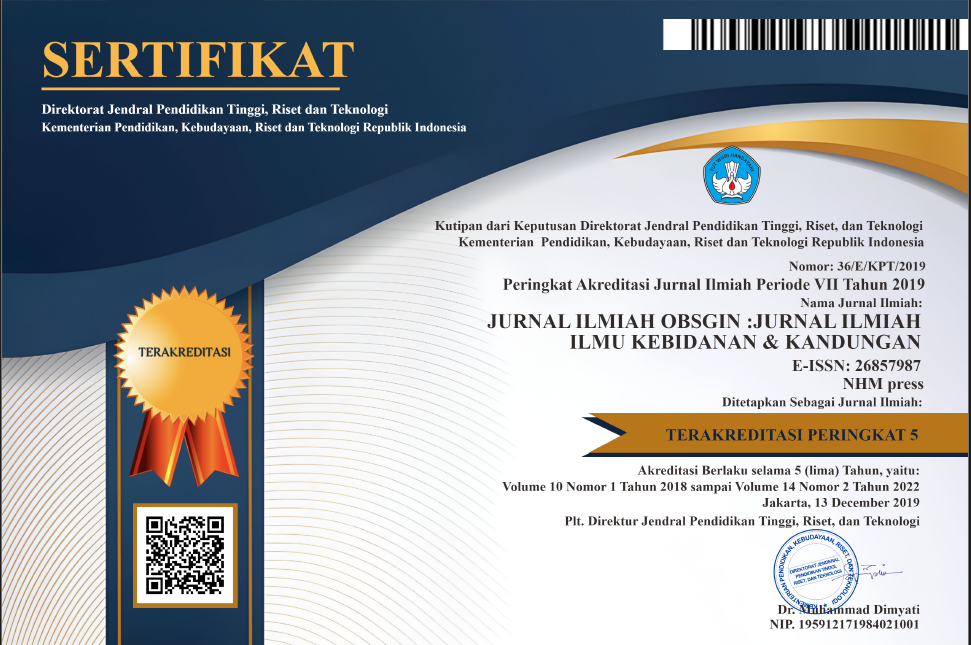Analisis Beban Kerja Terhadap Kualitas Layanan dan Kesejahteraan Tenaga Kesehatan Non ASN di Unit Rawat Inap Psikiatri Rsud Batara Guru Kabupaten Luwu
Abstract
This study aims to analyze the relationship between work burden, service quality, and the well-being of non-ASN healthcare workers in the psychiatric inpatient unit of RSUD Batara Guru. The research used a quantitative correlational design (Kendall's Tau Test) with a cross-sectional approach. The data was collected from 30 non-ASN healthcare workers in the psychiatric inpatient unit using purposive sampling. The results showed that: (1) Work burden significantly affects service quality (ρ = 0.000 < 0.05), with a negative correlation indicating that higher work burden leads to lower service quality; (2) Work burden significantly affects the well-being of non-ASN healthcare workers (ρ = 0.010 < 0.05), with a negative correlation suggesting that higher work burden leads to lower well-being; (3) Service quality significantly affects the well-being of non-ASN healthcare workers (ρ = 0.001 < 0.05), with a positive correlation indicating that better service quality leads to better well-being. This research highlights the importance of managing work burden and improving service quality to enhance the well-being of healthcare workers.
References
Azizah, N., Millah, I., Kusumaningtiar, D. A., & Muda, C. A. K. (2023). Faktor–Faktor Yang Berhubungan Dengan Kelelahan Kerja Pada Perawat Di Rumah Sakit Zainuttaqwa Kota Bekasi. Jurnal Multidisiplin Indonesia, 2(9), 2445–2454.
Bakker, A. B., & Demerouti, E. (2007). The Job Demands-Resources model: State of the art. Journal of Managerial Psychology, 3(22), 309–328. https://doi.org/https://doi.org/10.1108/02683940710733115
Bakker, A. B., Demerouti, E., & Sanz-Vergel, A. I. (2021). Burnout and work engagement: The JD-R approach. Annual Review of Organizational Psychology and Organizational Behavior, 8, 389–414. https://doi.org/https://doi.org/10.1146/annurev-orgpsych-012420-091304
Deci, E. L., & Ryan, R. M. (1985). Intrinsic motivation and self-determination in human behavior. https://doi.org/https://doi.org/10.1007/978-1-4899-2271-7
Johnson, S., et al. (2020). Work-life balance and mental health in healthcare professionals. Journal of Mental Health, 3(15), 145–160.
Kim, M., & Kang, H. (2021). The effects of workload on stress, burnout, and quality of care among healthcare workers. International Journal of Environmental Research and Public Health, 10(18), 5120. https://doi.org/https://doi.org/10.3390/ijerph18105120
Lee, S., Park, J., & Kim, H. (2021). The relationship between quality of healthcare services and healthcare workers’ well-being: A study in South Korean hospitals. Journal of Health Services Research, 4(26), 512–526. https://doi.org/https://doi.org/10.1093/hsr/kvab067
Nika, M. B. (2023). Faktor-Faktor Yang Mempengaruhi Retensi Karyawan di Rumah Sakit Islam Ibnu Sina Padang Panjang Tahun 2023. Universitas Muhammadiyah Sumatera Barat.
Perry L, et al. (2019). Workload and Burnout in Psychiatric Nursing: A European Perspective. Journal Ment Health Nurs, 3(28), 755–764.
Salsabila, R., Abdullah, M., & Yusuf, F. (2022). Hubungan antara beban kerja dan stres kerja tenaga kesehatan di Puskesmas Dewantara Aceh Utara selama pandemi COVID-19. Jurnal Kesehatan Masyarakat Indonesia, 2(17), 45–53. https://doi.org/https://doi.org/10.24853/jkmi.17.2.45-53
Schaufeli, W. B., Bakker, A. B., & Salanova, M. (2020). The measurement of work engagement with a short questionnaire: A cross-national study. Educational and Psychological Measurement, 4(66), 701–716. https://doi.org/https://doi.org/10.1177/0013164405282471
Setiawan, R., Dewi, A. K., & Putra, Y. (2023). Workload imbalance and its impact on healthcare service quality: Evidence from Indonesian hospitals. Journal of Healthcare Quality, 3(45), 211–225. https://doi.org/https://doi.org/10.1177/10628606231109876
Stafseth, A. B., et al. (2022). Workload and its impact on nurses’ quality of care: A cross-sectional study. Nursing Management, 4(24), 28–35. https://doi.org/https://doi.org/10.1097/01.NUMA.0000837043.99852.1a
Wang, X., et al. (2020). The association between workload and quality of care: Evidence from healthcare services. BMC Health Services Research, 1(20), 1056. https://doi.org/https://doi.org/10.1186/s12913-020-05843-7
World Health Organization. (2006). Mental health services in hospitals.
Zhang Y, et al. (2021). Challenges in managing workload in psychiatric settings. Asian Psychiatry, 2(12), 140–149.











